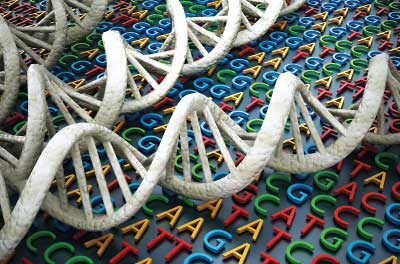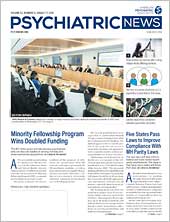Numerous genetic studies over the years have shown that people with different psychiatric disorders share similar genetic risk factors.
A study published June 22 in Science has now amplified this existing genetic knowledge to new heights. Making use of over two million DNA samples from across the globe, a research consortium has highlighted the shared heritability of 25 psychiatric and neurological disorders.
The results of this massive effort validate that psychiatric disorders share a lot of underlying risk factors, whereas neurological disorders are more distinct from each other.
That difference highlights how valuable it is to have specific biological abnormalities linked to a disease, said study co-author Benjamin Neale, Ph.D., an assistant professor of medicine at Harvard Medical School. Neale is also a member of the Analytic and Translational Genetics Unit at Massachusetts General Hospital.
Neale and his colleagues with the Brainstorm Consortium conducted a genome-wide association study of DNA samples from 265,218 patients with one of either 10 psychiatric disorders or 15 neurological disorders and 784,643 healthy controls.
Among the most striking findings was the correlation between schizophrenia and six other varied psychiatric disorders: attention-deficit/hyperactivity disorder (ADHD), anorexia nervosa, autism spectrum disorder, bipolar disorder, major depression, and obsessive-compulsive disorder. (Anxiety disorder, posttraumatic stress disorder [PTSD], and Tourette’s syndrome were the other three psychiatric disorders analyzed in this study.)
“This makes sense as schizophrenia touches on so many different components of how the brain works,” Neale said. He noted that the shared genetics of schizophrenia and ADHD might seem somewhat unexpected, but it likely reflects that both disorders involve problems with executive function.
On the other end of the spectrum was PTSD, which had no significant genetic correlation with any other psychiatric disorder. Neale noted that the number of PTSD samples was low (about 2,000), which may have limited the ability to detect shared connections. However, it may also reflect that this disorder, which is tied to some precipitating event, has unique characteristics.
Interestingly, neurological problems also showed very little overlap with psychiatric disorders, even though behavioral symptoms are common in disorders such as Alzheimer’s disease and Parkinson’s disease. The one exception was migraines, which shared risk factors with ADHD, major depression, and Tourette’s syndrome.
“This was surprising. If I had to pick ahead of time, I would have said migraine would share the most genetics with bipolar disorder, since there is epidemiological evidence that people with bipolar disorder have much higher rates of migraine,” Neale said.
As for depression and ADHD (and Tourette’s, which is often comorbid with ADHD), Neale said he believes the connection with migraine may be related to pain sensitivity. That people with depression tend to be more sensitive to pain is known, but there is early evidence that children with ADHD also are more sensitive to their surrounding environment.
But the unexpected genetic connections between migraine and psychiatric disorders, as well as some other surprises such as no connection between Tourette’s and epilepsy, underscores the need to conduct such large genetic studies.
“We are not done with the yeoman’s work on brain genetics,” Neale said. “And as we learn more, some of our implied considerations about how these disorders relate will be tested.”
This project was funded by the National Institute of Mental Health, the Orion Farmos Research Foundation, and the Fannie and John Hertz Research Foundation. ■
An abstract of “Analysis of Shared Heritability in Common Disorders of the Brain” can be accessed
here.

